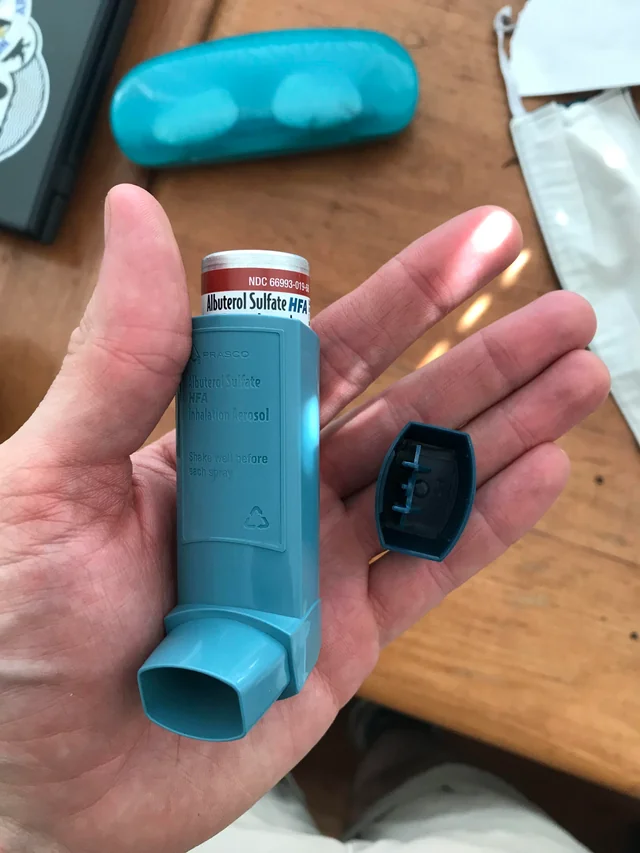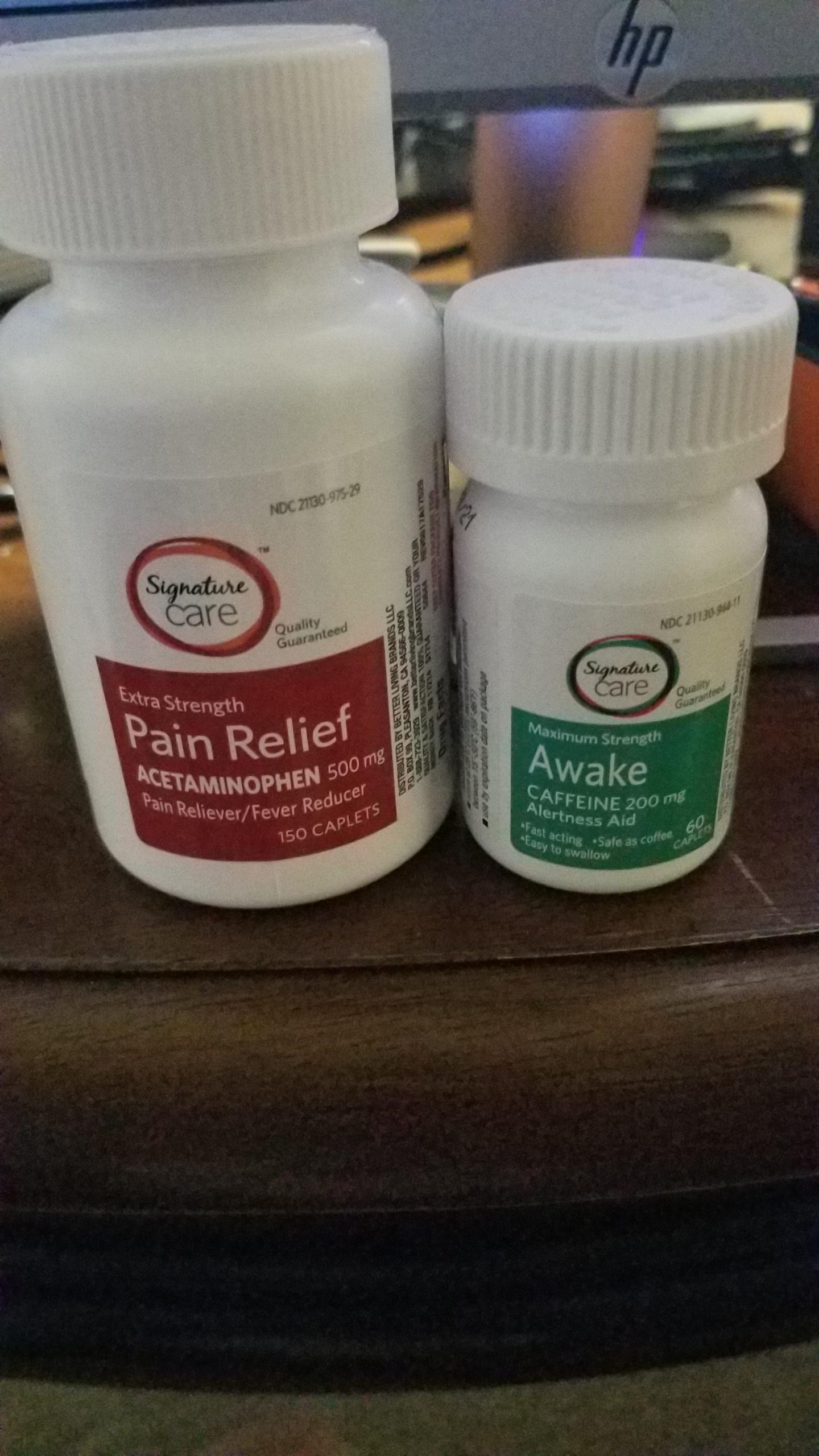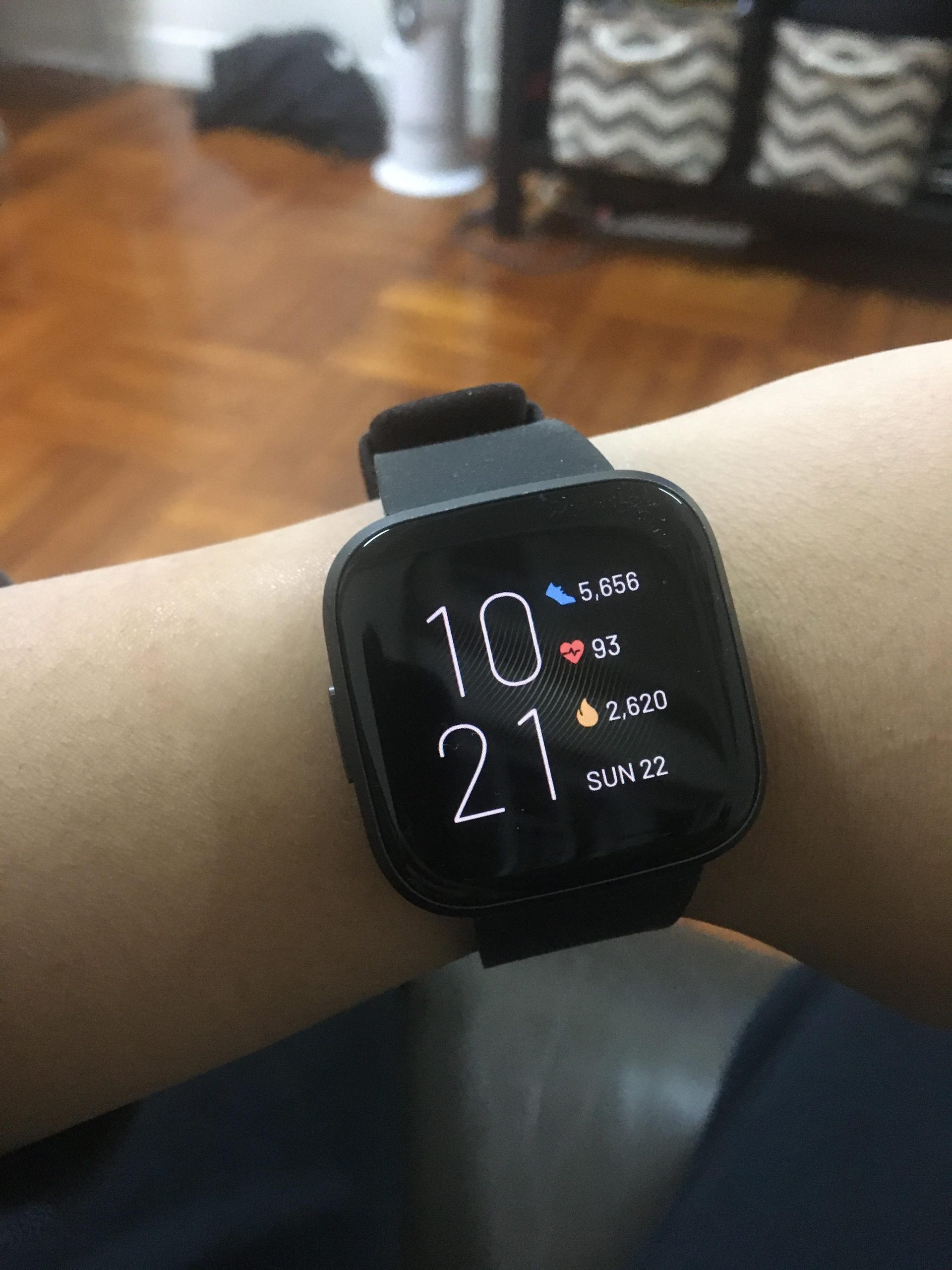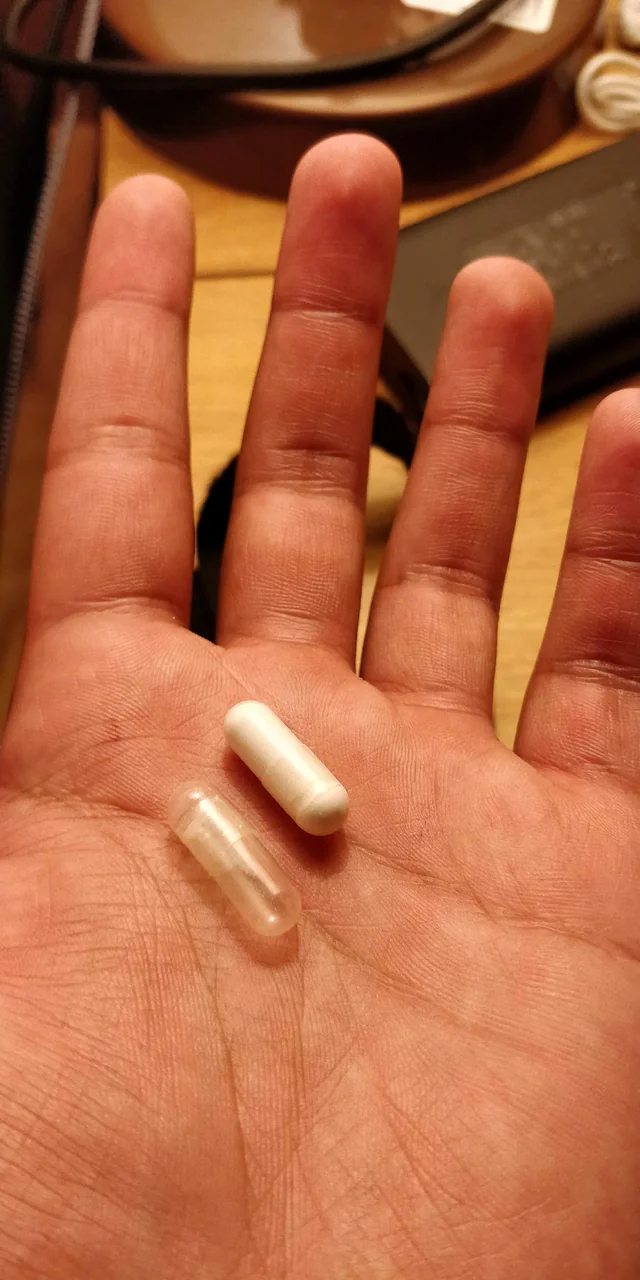1. You Are Having Palpitations
 image source: reddit
image source: reddit
Palpitations, or the sensation of irregular or rapid heartbeats, can often indicate that your heart is being overworked. While occasional palpitations may be benign, frequent episodes or those accompanied by other symptoms such as dizziness or chest discomfort should not be ignored. If you're experiencing palpitations, it's essential to consult with a healthcare professional to determine the underlying cause and receive appropriate treatment.
2. Attending The Gym Everyday
 image source: reddit
image source: reddit
While regular exercise is crucial for heart health, overdoing it at the gym can actually put excessive strain on your heart. Pushing yourself too hard with intense workouts every day without giving your body adequate time to rest and recover can lead to overwork of the heart muscle. It's important to strike a balance between exercise and rest days, and to listen to your body's signals to avoid overexertion.
3. Always Wanting To Sleep
 image source: reddit
image source: reddit
Feeling constantly fatigued and experiencing an overwhelming desire to sleep can be a sign that your heart is struggling to keep up with the demands placed on it. When the heart is overworked, it may not be able to efficiently pump blood and oxygen throughout the body, leading to feelings of tiredness and lethargy.
4. Having Shortness Of Breath
 image source: reddit
image source: reddit
Shortness of breath, especially during physical activity or exertion, is a common symptom of an overworked heart. When the heart is unable to pump enough blood to meet the body's needs, it can result in inadequate oxygen delivery to the tissues, leading to difficulty breathing.
5. Your Chest Is Hurting
 image source: reddit
image source: reddit
Chest pain or discomfort, often described as pressure, tightness, or aching, can be a warning sign that your heart is being overworked. While chest pain can have various causes, including heartburn or muscle strain, it's essential not to ignore it, especially if it's recurrent or severe. Chest pain accompanied by other symptoms such as shortness of breath, nausea, or sweating may indicate a more serious heart issue and requires immediate medical evaluation.
6. Your Feet Are Swollen
 image source: reddit
image source: reddit
Swelling in the feet, ankles, or legs, known as edema, can be a sign of heart failure or other heart-related issues. When the heart is overworked and unable to effectively pump blood throughout the body, fluid can accumulate in the lower extremities, leading to swelling. This could be a sign of a massive health problem!
7. Or Your Abdomen

image source: reddit
In addition to swelling in the lower extremities, fluid retention due to an overworked heart can also manifest as swelling in the abdomen. This swelling, known as ascites, may cause abdominal discomfort or a feeling of fullness. Ascites can be a sign of advanced heart failure and should be evaluated by a healthcare provider promptly to determine the underlying cause and appropriate treatment.
8. You Keep Getting Migraines
 image source: reddit
image source: reddit
Frequent migraines or headaches can sometimes be linked to heart issues, particularly if they occur alongside other symptoms such as palpitations or shortness of breath. While migraines can have various triggers and causes, including stress and dietary factors, it's essential to consider the possibility of an underlying heart condition if you're experiencing persistent headaches.
9. You Keep Vomiting
 image source: reddit
image source: reddit
Persistent vomiting, especially if it's unexplained or accompanied by other symptoms such as chest pain or shortness of breath, can indicate a problem with the heart. When the heart is overworked or functioning inefficiently, it can lead to fluid buildup in the body, including the digestive system, resulting in nausea and vomiting.
10. Excessive Sweating
 image source: reddit
image source: reddit
Excessive sweating, particularly when it's unrelated to physical activity or environmental factors such as heat, can be a sign that your heart is being overworked. When the heart is struggling to pump blood effectively, the body may respond by increasing sweat production as it tries to regulate temperature and maintain adequate circulation.
11. Waking Up In The Night
 image source: reddit
image source: reddit
Interrupted sleep, particularly if you find yourself waking up frequently throughout the night, can be a sign of heart issues. When the heart is overworked or struggling to pump blood efficiently, it may lead to disruptions in circulation, causing you to wake up gasping for air or feeling restless.
12. Rapid Weight Gain
 image source: reddit
image source: reddit
Sudden or unexplained weight gain can be a red flag for heart problems, especially if it occurs over a short period. When the heart is overworked or failing to function properly, it can lead to fluid retention in the body, causing rapid weight gain. This weight gain may be accompanied by other symptoms such as swelling in the legs, abdomen, or other areas.
13. Struggling To Exercise
 image source: reddit
image source: reddit
Difficulty exercising or performing physical activities that were once manageable can indicate that your heart is being overworked. When the heart is unable to meet the increased demand for oxygen and blood flow during exercise, it can result in symptoms such as fatigue, shortness of breath, or chest discomfort.
14. Coughing Loads
 image source: reddit
image source: reddit
Persistent or excessive coughing can sometimes be a sign of heart issues, particularly if it's accompanied by other symptoms such as shortness of breath or fatigue. When the heart is overworked or failing to function efficiently, it can lead to fluid buildup in the lungs, causing coughing or wheezing.
15. Fainting
 image source: reddit
image source: reddit
Fainting, also known as syncope, can be a serious symptom of heart problems and should never be ignored. When the heart is overworked or struggling to pump blood effectively, it may lead to inadequate circulation to the brain, resulting in loss of consciousness. If you experience fainting episodes, particularly if they're recurrent or associated with other symptoms such as chest pain or palpitations.
16. Finding Edemas
 image source: reddit
image source: reddit
Discovering edemas, or swollen areas on your body, can be indicative of heart issues, especially if they're persistent or worsening over time. Edemas commonly occur in areas where fluid accumulates, such as the ankles, feet, or legs, due to poor circulation caused by an overworked heart.
17. Your Heart Rate Is High
 image source: reddit
image source: reddit
A consistently elevated heart rate, especially at rest, can be a sign of an overworked heart. When the heart is struggling to pump blood efficiently, it may compensate by increasing its rate to meet the body's demands. Monitoring your heart rate regularly and noticing persistent elevations can provide valuable insight into your heart health.
18. Discoloured Fingertips
 image source: reddit
image source: reddit
Discoloration of the fingertips, particularly a bluish or purplish hue, can be a sign of poor circulation, which may be related to heart issues. When the heart is overworked or failing to pump blood effectively, it can lead to inadequate circulation to the extremities, causing changes in skin color.
19. OR Lips
 image source: reddit
image source: reddit
In addition to fingertip discoloration, changes in the color of the lips can also indicate poor circulation or oxygenation, which may be related to heart problems. Bluish or purplish lips can suggest inadequate oxygen delivery to the tissues, potentially due to an overworked heart or other circulatory issues. If you notice changes in the color of your lips, particularly if it's accompanied by other symptoms such as shortness of breath or chest pain, it's important to consult with a healthcare professional for further evaluation and management.
20. You're Bloated
 image source: reddit
image source: reddit
Feeling bloated or experiencing abdominal discomfort can be a sign of heart issues, especially if it's accompanied by other symptoms such as swelling in the legs or shortness of breath. When the heart is overworked or failing to pump blood effectively, it can lead to fluid retention in the body, causing bloating or a feeling of fullness in the abdomen.
21. And Having Toilet Issues
 image source: reddit
image source: reddit
Changes in bowel habits or difficulty with urination can sometimes be linked to heart issues. When the heart is overworked, it can lead to fluid retention and congestion in various parts of the body, including the abdomen and pelvis. This may result in symptoms such as constipation, diarrhea, or difficulty urinating.
22. Struggling To Remember Things
 Image Source: Reddit
Image Source: Reddit
Cognitive issues such as difficulty remembering things or experiencing mental fog can sometimes be associated with heart problems. When the heart is overworked or struggling to pump blood efficiently, it may lead to decreased blood flow to the brain, affecting cognitive function.
23. Getting Indigestion A Lot
 image source: reddit
image source: reddit
Frequent episodes of indigestion or heartburn can sometimes be related to heart issues, particularly if they occur alongside other symptoms such as chest discomfort or shortness of breath. When the heart is overworked or failing to function properly, it can lead to congestion in the digestive system, causing symptoms such as indigestion or acid reflux.
24. Not Wanting To Go Outside
 image source: reddit
image source: reddit
Feeling reluctant or disinterested in going outside can sometimes be a sign of underlying health issues, including potential heart problems. When the heart is overworked or not functioning optimally, it can lead to symptoms such as fatigue, weakness, or shortness of breath, which may contribute to a lack of motivation to engage in outdoor activities.
25. Difficulty Urinating
 image source: reddit
image source: reddit
Difficulty with urination, such as hesitancy, weak stream, or incomplete emptying of the bladder, can sometimes be linked to heart issues. When the heart is overworked, it can lead to fluid retention and congestion in the body, including the pelvis and urinary tract. This may result in symptoms such as difficulty urinating or changes in urinary frequency.
26. Having No Desire For Sex
 image source: reddit
image source: reddit
Decreased libido or loss of interest in sex can sometimes be associated with heart problems, particularly if it's accompanied by other symptoms such as fatigue or shortness of breath. When the heart is overworked or struggling to pump blood efficiently, it may lead to decreased blood flow to the reproductive organs, affecting sexual function.
27. You're Producing A Lot Of Phlegm
 image source: reddit
image source: reddit
Excessive production of phlegm or mucus, especially if it's persistent or accompanied by other symptoms such as coughing or wheezing, can sometimes be linked to heart issues. When the heart is overworked or failing to function properly, it can lead to congestion in the lungs and respiratory tract, causing increased mucus production.
28. You Keep Needing To Drink
 image source: reddit
image source: reddit
Feeling constantly thirsty or experiencing excessive thirst, known as polydipsia, can sometimes be a sign of heart problems. When the heart is overworked or struggling to pump blood efficiently, it may lead to changes in fluid balance and hydration levels in the body. This can result in increased thirst and the need to drink more fluids.
29. You're Bruising Easily
 image source: reddit
image source: reddit
Easy bruising or the development of bruises with minimal trauma can sometimes be linked to heart issues. When the heart is overworked or failing to function properly, it can lead to changes in blood clotting and circulation, increasing the risk of bruising. If you're experiencing persistent or unexplained bruising, especially if it's accompanied by other symptoms such as fatigue or shortness of breath
30. Feeling Dizzy
 image source: reddit
image source: reddit
Dizziness or lightheadedness can sometimes be a sign of heart problems, particularly if it's persistent or occurs alongside other symptoms such as palpitations or shortness of breath. When the heart is overworked or struggling to pump blood effectively, it may lead to inadequate blood flow to the brain, resulting in dizziness or a feeling of faintness.
Now Here Are Some Ways To Protect Your Heart... 31. Get Regular Exercise
 image source: reddit
image source: reddit
Regular exercise is one of the most effective ways to protect your heart health. Aim for at least 150 minutes of moderate-intensity aerobic activity or 75 minutes of vigorous-intensity aerobic activity each week, along with muscle-strengthening activities on two or more days per week. Exercise helps improve cardiovascular fitness, lowers blood pressure, and reduces the risk of developing heart disease.
32. Eat Healthily
 image source: reddit
image source: reddit
Maintaining a healthy diet is essential for heart health. Focus on eating a variety of nutrient-rich foods, including fruits, vegetables, whole grains, lean proteins, and healthy fats. Limit your intake of processed foods, sugary snacks, and foods high in saturated and trans fats, which can contribute to heart disease risk factors such as high cholesterol and high blood pressure.
33. Avoid Fried Foods
 image source: reddit
image source: reddit
Fried foods are often high in unhealthy fats, calories, and sodium, making them detrimental to heart health when consumed regularly. Fried foods can contribute to weight gain, high cholesterol, and high blood pressure, all of which increase the risk of heart disease. To protect your heart health, choose healthier cooking methods such as baking, grilling, steaming, or sautéing with heart-healthy oils like olive oil.
34. Keep Yourself Hydrated
 image source: reddit
image source: reddit
Staying hydrated is important for maintaining heart health. Drinking an adequate amount of water helps support proper blood circulation, regulates blood pressure, and prevents dehydration, which can strain the heart. Aim to drink at least eight glasses of water per day, and adjust your fluid intake based on factors such as physical activity level, climate, and overall health status.
35. Manage Your Stress (It's Hard I Know)
 image source: reddit
image source: reddit
Chronic stress can have a significant impact on heart health, increasing the risk of high blood pressure, heart disease, and other cardiovascular problems. Finding healthy ways to manage stress is crucial for protecting your heart. Practice stress-reduction techniques such as deep breathing, meditation, yoga, or engaging in hobbies and activities you enjoy.
36. Avoid Smoking
 image source: reddit
image source: reddit
Smoking is one of the most significant risk factors for heart disease and other cardiovascular conditions. The chemicals in tobacco smoke damage the blood vessels, increase blood pressure, and raise the risk of blood clots, heart attacks, and strokes. Quitting smoking is one of the best things you can do to protect your heart health.
37. And Drinking Too Much Alcohol
 image source: reddit
image source: reddit
While moderate alcohol consumption may have some heart-protective benefits, excessive drinking can have detrimental effects on heart health. Drinking too much alcohol can raise blood pressure, increase triglyceride levels, contribute to weight gain, and weaken the heart muscle. To protect your heart, limit alcohol intake to moderate levels – up to one drink per day for women and up to two drinks per day for men.
38. Get PLENTY Of Sleep!
 image source: reddit
image source: reddit
Adequate sleep is essential for heart health. Poor sleep quality or insufficient sleep has been linked to an increased risk of heart disease, hypertension, obesity, and diabetes. Aim for 7-9 hours of quality sleep each night to support overall cardiovascular health. Establish a consistent sleep schedule, create a relaxing bedtime routine, and create a comfortable sleep environment to promote restful sleep.
39. Make Sure To Visit Your Doctor Regularly
 image source: reddit
image source: reddit
Regular medical check-ups are crucial for monitoring and maintaining heart health. Schedule regular appointments with your healthcare provider for routine check-ups, screenings, and assessments of key heart health indicators such as blood pressure, cholesterol levels, blood sugar levels, and body weight.
40. Know Your Family History
 image source: reddit
image source: reddit
Understanding your family history of heart disease and other cardiovascular conditions is important for assessing your own risk and taking proactive steps to protect your heart health. If you have close relatives who have experienced heart disease, heart attacks, strokes, or other cardiovascular conditions, you may have an increased genetic predisposition to these conditions.
41. Eat Plenty Of Fibre
 image source: reddit
image source: reddit
Fiber-rich foods play a crucial role in heart health by helping to lower cholesterol levels, regulate blood sugar levels, and promote healthy digestion. Aim to include plenty of fiber-rich foods such as fruits, vegetables, whole grains, legumes, nuts, and seeds in your diet. These foods not only support heart health but also contribute to overall well-being and disease prevention
42. Stop Eating So Much Chocolate
 image source: reddit
image source: reddit
While dark chocolate in moderation may have heart-healthy benefits due to its antioxidant content, consuming too much chocolate, especially varieties high in sugar and saturated fat, can be detrimental to heart health. Excessive consumption of chocolate and other high-calorie, sugary treats can contribute to weight gain, high blood pressure, and elevated cholesterol levels.
43. Practice Good Dental Hygiene
 image source: reddit
image source: reddit
Maintaining good dental hygiene is not only essential for oral health but also for heart health. Poor dental health, including gum disease and periodontal infections, has been linked to an increased risk of heart disease and other cardiovascular conditions. To protect your heart, brush your teeth at least twice a day, floss daily, and visit your dentist regularly for check-ups and cleanings.
44. Use Herbs And Spices Instead Of Salt

image source: reddit
Excessive salt intake is associated with high blood pressure and an increased risk of heart disease. To reduce your salt intake and protect your heart, flavor your meals with herbs, spices, and other natural seasonings instead of salt. Experiment with a variety of herbs and spices such as garlic, ginger, turmeric, rosemary, and cinnamon to add flavor to your dishes without relying on salt.
45. Eat Plenty Of Fatty Fish
 image source: reddit
image source: reddit
Fatty fish such as salmon, mackerel, trout, and sardines are rich sources of omega-3 fatty acids, which have been shown to have numerous heart-healthy benefits. Omega-3 fatty acids help reduce inflammation, lower triglyceride levels, and improve heart rhythm, all of which contribute to lower cardiovascular risk.
46. Spend Time With Your Friends
 image source: reddit
image source: reddit
Maintaining strong social connections and spending time with friends and loved ones is important for heart health and overall well-being. Studies have shown that people with strong social support networks have lower rates of heart disease and better cardiovascular outcomes. Make time to nurture your relationships, engage in social activities, and lean on your friends for support during times of stress or difficulty.
47. Cut Back On Red Meat
 image source: reddit
image source: reddit
High consumption of red meat, especially processed varieties such as bacon, sausage, and hot dogs, has been linked to an increased risk of heart disease and other health problems. Red meat is high in saturated fat and cholesterol, which can raise blood cholesterol levels and contribute to atherosclerosis and heart disease.
48. Cut Down On Caffeine
 image source: reddit
image source: reddit
While moderate caffeine consumption is generally safe for most people, excessive intake of caffeine from coffee, tea, energy drinks, and other sources can have negative effects on heart health. High levels of caffeine can increase heart rate, raise blood pressure, and trigger irregular heart rhythms in susceptible individuals.
49. Take Prescribed Medicines
 image source: reddit
image source: reddit
If you have been diagnosed with conditions such as high blood pressure, high cholesterol, diabetes, or other cardiovascular risk factors, taking prescribed medications as directed by your healthcare provider is essential for managing these conditions and protecting your heart health. Medications such as statins, beta-blockers, ACE inhibitors, and blood thinners can help lower blood pressure, cholesterol levels, and prevent blood clots, reducing the risk of heart disease and complications.
50. Practice Yoga Or Meditation
 image source: reddit
image source: reddit
Yoga and meditation are ancient practices that have been shown to have numerous benefits for heart health and overall well-being. These mind-body practices help reduce stress, lower blood pressure, improve cardiovascular function, and promote relaxation, all of which contribute to better heart health. Incorporate yoga or meditation into your daily routine to reap the benefits for your heart and mind.
 image source: reddit
image source: reddit image source: reddit
image source: reddit image source: reddit
image source: reddit image source: reddit
image source: reddit image source: reddit
image source: reddit image source: reddit
image source: reddit
 image source: reddit
image source: reddit image source: reddit
image source: reddit image source: reddit
image source: reddit image source: reddit
image source: reddit image source: reddit
image source: reddit image source: reddit
image source: reddit image source: reddit
image source: reddit image source: reddit
image source: reddit image source: reddit
image source: reddit image source: reddit
image source: reddit image source: reddit
image source: reddit image source: reddit
image source: reddit image source: reddit
image source: reddit image source: reddit
image source: reddit Image Source: Reddit
Image Source: Reddit image source: reddit
image source: reddit image source: reddit
image source: reddit image source: reddit
image source: reddit image source: reddit
image source: reddit image source: reddit
image source: reddit image source: reddit
image source: reddit image source: reddit
image source: reddit image source: reddit
image source: reddit image source: reddit
image source: reddit image source: reddit
image source: reddit image source: reddit
image source: reddit image source: reddit
image source: reddit image source: reddit
image source: reddit image source: reddit
image source: reddit image source: reddit
image source: reddit image source: reddit
image source: reddit image source: reddit
image source: reddit image source: reddit
image source: reddit image source: reddit
image source: reddit image source: reddit
image source: reddit image source: reddit
image source: reddit
 image source: reddit
image source: reddit image source: reddit
image source: reddit image source: reddit
image source: reddit image source: reddit
image source: reddit image source: reddit
image source: reddit image source: reddit
image source: reddit